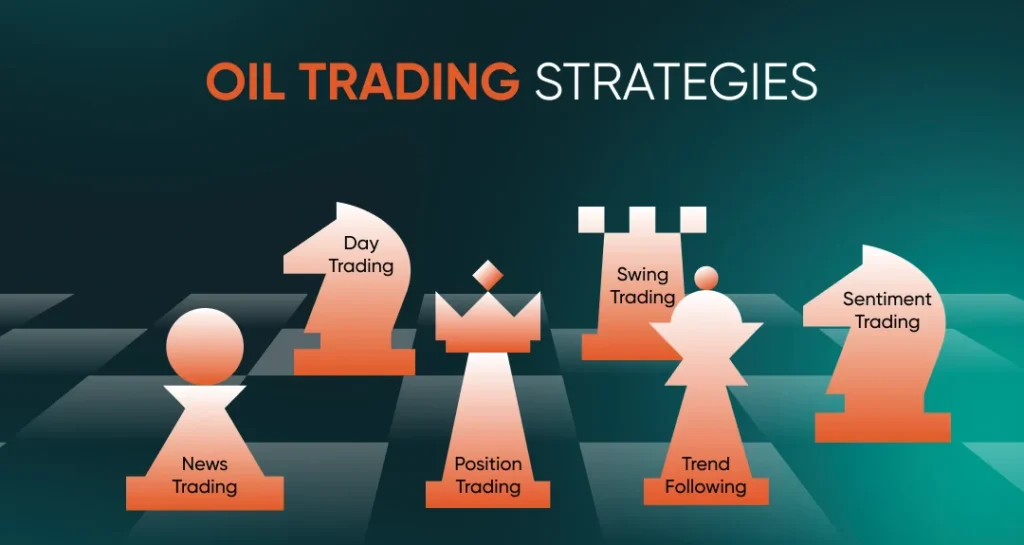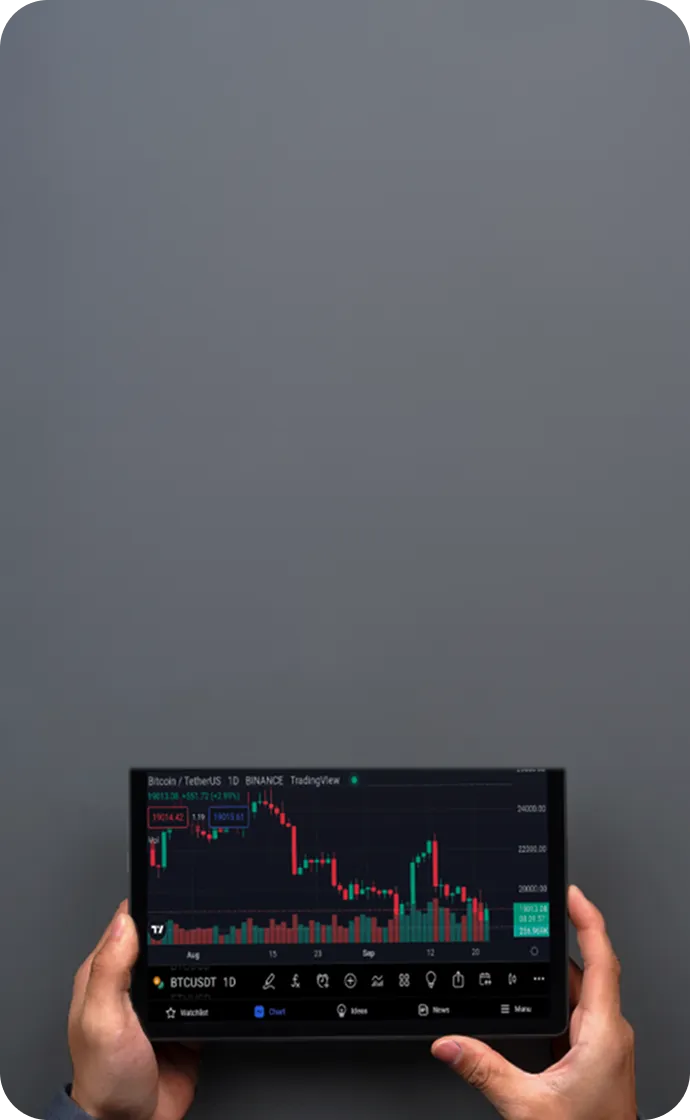What is Crude Oil?
Crude oil is a naturally occurring fossil fuel and the world’s most widely used energy source. It powers electricity generation, transportation, and more. Oil Trading involves traders profiting from buying and selling various types of oil and oil-related instruments.
The most actively traded crude oils are Brent and West Texas Intermediate (WTI), both serving as key industry benchmarks. Brent crude is extracted from the North Sea and acts as the benchmark for much of the oil produced in Europe, Africa, and parts of the Middle East. WTI crude is the benchmark for oil production in North America.
How to Trade Oil?
Beyond physical commodities, there are several methods to trade oil:
Contracts for Difference (CFDs)
Stocks
Futures Contracts
Exchange-Traded Funds (ETFs)
Spread Betting
Options
With platforms like TMGM, you gain access to multiple oil market asset classes and can trade Brent and WTI. TMGM provides leverage up to 1:200 and superior liquidity. Open a demo account and learn more here.
Oil Trading Strategies
Oil trading strategies typically focus on two main types of analysis: technical and fundamental.
Traders may use either approach, but successful oil trading generally requires incorporating fundamental analysis.
Fundamental analysis involves evaluating a security’s intrinsic value to identify profitable trading opportunities. This is achieved by examining a company’s financial statements and its overall economic position to determine the asset’s true worth.’
What Influences Oil Prices?
Economic Activity
There is a positive correlation between oil prices and economic performance. A country’s economic growth typically drives oil demand. During expansions, demand increases; during downturns, demand declines.'
For example, during the COVID-19 pandemic, oil demand plummeted, leading to oversupply and a rapid decline in prices.
Global Conflict
Geopolitical conflicts, especially between oil-producing nations, can cause significant volatility in oil prices.
Supply Disruptions
Supply interruptions can drive global oil prices higher. These may result from equipment failures or damage. For instance, destruction of an oil refinery during conflict would reduce production and global supply.
International Relations
Oil diplomacy uses oil as a tool in political and diplomatic relations. Deterioration in bilateral relations can impact a country’s oil supply or demand, shifting demand to other regions.’
US Dollar (USD)
Since oil is priced in USD, fluctuations in the US dollar affect oil prices. A strong USD makes oil more expensive for holders of other currencies, reducing international demand and causing prices to fall.
Oil Trading Fundamentals
To stay informed on oil prices and market conditions, monitor the following:
OPEC
OPEC is a permanent intergovernmental organization of 12 oil-exporting developing countries that coordinates and harmonizes oil policies among its members. Its goal is to maintain market stability and ensure an efficient, reliable petroleum supply.
OPEC publishes annual and monthly reports addressing global oil market trends and forecasts for the upcoming year.
Energy Information Administration (EIA)
The EIA releases weekly petroleum status reports detailing current supply, inventories, and crude oil prices.
Next Steps
If you’re interested in oil trading, gaining a thorough understanding of the market and applying fundamental analysis will enhance your success potential. Beginners are encouraged to start with a demo account before committing real capital.












